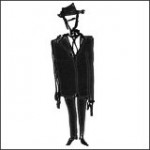On the Front Lines
Nhuận left the CIO/SOC in December 1963 to become Chief of the National Police in Quảng-Đức Province, headquartered in Gia Nghia City in the Central Highlands. Like his previous post in Darlac, Quảng-Đức was a mountainous province on the Kampuchea border, populated by Montagnards.
Nhuận maintained his CIO contacts, but there was less contact between the SOC and the Special Branch in the years after the 1963 revolution, as the CIA tightened its control of the CIO at the expense of the Special Police.


